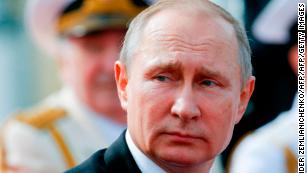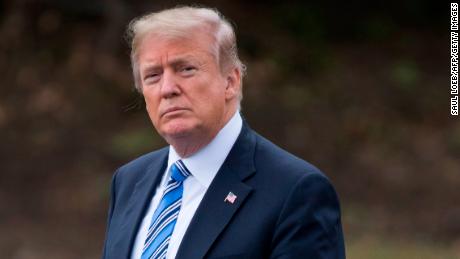begin quote from:
Opinion: This is only the beginning for Mueller
What Mueller's indictments tell us 04:01
Asha Rangappa is a senior lecturer at Yale's Jackson Institute for Global Affairs. She is a former special agent in the FBI, specializing in counterintelligence investigations. Follow her @AshaRangappa_. The opinions expressed in this commentary are solely those of the author.
(CNN)Special counsel Robert Mueller's indictment
against 13 Russian individuals and three Russian entities marks a major
turning point in his investigation into Russian interference in the
2016 election.
Critics
of Mueller's investigation have been quick to suggest the indictment
proves that no collusion took place between the Trump campaign and
Russia. President Donald Trump reiterated as much in a string of tweets
on Saturday and Sunday, in which he argued yet again "that the only
Collusion was between Russia and Crooked H, the DNC and the Dems" and
that the Russians "are laughing their asses off in Moscow!"
And
although this indictment does not make the allegation of Trump campaign
collusion explicitly, it may be too early to jump to any definitive
conclusions. As a lawyer and former FBI agent who conducted
counterintelligence investigations, I believe Mueller achieved five
things with this indictment, all of which suggest this is not the end of
the story.
1. Neutralizing Russia
The
most extraordinary aspect of Mueller's indictment is that it lays out,
in great detail, one aspect of a large-scale Russian intelligence
operation against the United States. It's not surprising that the FBI
uncovered the operation: As part of its counterintelligence mandate, the
FBI's job is to identify and disrupt the activities of foreign spies in
the United States.
Typically,
however, these investigations never see the inside of a courtroom.
That's because it's generally better for the FBI to keep its adversaries
from knowing they are monitoring their activities: This allows the FBI
to keep its methods and sources secret and quietly "neutralize," or
render ineffective, the foreign intelligence service's operations.
In
making the details of Russia's social media and propaganda operation
public, Mueller accomplished two goals. First, he made it crystal clear
to Russia that pursuing a criminal case against individuals and entities
who have interfered in our democracy is a priority and worth the
tradeoffs that come with exposing the FBI's secrets. And second -- and
perhaps more importantly -- because Russia's social media and propaganda
campaign is only effective as long as it remains in the shadows, the
best way to neutralize it is to make it public. Mueller's indictment
reveals exactly how Americans may have been duped by false and
misleading information pushed out by Russia.
2. A public 'report'
One of the limitations of the special counsel regulation is that it focuses on a criminal investigation, not a counterintelligence one.
This means that beyond charging specific violations of the federal
criminal code, Mueller does not have an option to provide a public
report laying out the bigger picture, in the same way that former
independent counsels, like Kenneth Starr, had the power to do. (Starr,
referred to as independent counsel -- not special counsel -- had more
latitude, but after his investigation concluded, new Department of
Justice regulations were written to reel in the excesses of his
investigation.) Without a report coming from the lead investigator, the
American public would have to rely on Congress to investigate the matter
thoroughly.
It's fair to say that
neither the House Intelligence Committee, the Senate Intelligence
Committee nor the Senate Judiciary Committee -- all of which are
ostensibly investigating alleged Russian interference -- have helped the
American public make sense of what happened in 2016. Mueller's
indictment now fills this void. The indictment identifies the federal
crimes Russian individuals and companies may have violated, including conspiracy to violate federal election laws, wire fraud, bank fraud and identity theft.
Though
it's unlikely that Mueller will be able to bring these defendants into
court (since Russia will probably not extradite them), focusing the
charges on Russians allows him to use the indictment as a kind of
"public report," which gives the bigger picture of what Russia attempted
to do. The indictment supplements the January 2017 intelligence
community assessment that Russia did interfere in the 2016 elections and
shows that there is hard evidence to prove that this allegation is not a
hoax.
National security adviser H.R. McMaster acknowledged
as much, telling an audience in Germany on Friday that Mueller's
indictment shows Russian meddling is "now really incontrovertible."
Trump tweeted in response that McMaster forgot to say "that the results
of the 2016 election were not impacted or changed by the Russians" --
undercutting his adviser's strong rhetoric.
3. The groundwork for collusion
As I have written previously,
Mueller's path to proving collusion is 1) identifying what the Russians
did; 2) determining if they violated any federal laws; and 3) finding
evidence that US persons helped Russia in its efforts. The indictment
shows that Mueller has found evidence of (1) and (2). The indictment
also shows that Russia did enlist the help of US persons in several
aspects of its operations. These include "unwitting" members of Trump's campaign involved "in local community outreach ... that supported then-candidate Trump."
The
fact that the indictment states that some members of the campaign were
"unwitting" does not preclude the possibility that Mueller has evidence
that campaign members wittingly assisted Russia as well.
The
key here is the charge of "conspiracy," which is the legal term for
"collusion." Anyone who knowingly helped Russia in any aspect of its
operation can be charged with conspiracy -- or aiding and abetting the
conspiracy. Remember that Mueller can always amend or "supersede" the
indictment to include additional defendants. In fact, the introduction to
the indictment indicates that Russians conspired with "persons known
... to the grand jury" -- which may include American defendants who have
already been charged or are under investigation.
4. Encouraging people to come forward
Given
that Mueller can always charge additional defendants, the indictment
puts anyone who knowingly assisted Russia on notice that they may be
next. This could include members of the Trump campaign, social media
executives or ordinary Americans, all of whom now know that Mueller has
substantial evidence in his possession, including detailed
communications between Russian operatives and people within the United
States. These individuals now have an opportunity to come forward -- and
perhaps receive more lenient treatment than if they stay silent.
It's
also noteworthy that the indictment focuses only on one aspect of
Russia's operation, namely its social media and propaganda campaign. But
the intelligence community has also indicated
that Russians attempted to hack the DNC server and made attempts to
offer stolen emails to the Trump campaign -- which could constitute
additional federal offenses.
Mueller
is undoubtedly investigating these aspects of Russia's interference
efforts. If Mueller is able to follow the 1-2-3 outline, additional
conspiracy charges on these fronts may still be forthcoming.
5. Protecting the investigation
By
charging only Russians and Russian entities in his indictment, Mueller
has undermined allegations that this is simply a politically motivated
investigation. In fact, by showing that the 2016 election interference
was conceived and executed primarily by Russia, he has made clear that,
at its core, this is a national security investigation against a hostile
foreign power.
At
this point, there can be no question that trying to derail Mueller's
investigation -- including attempting to fire him, or his boss, Deputy
Attorney General Rod Rosenstein -- is directly beneficial to Russia. In
short, the political costs of trying to quash the investigation have
just skyrocketed, and attempting to quash the investigation at this
point could even be a clear case of obstruction of justice.
In
short, Mueller's latest indictment is just the beginning. He has
identified a critical national security threat, publicized it and made
it clear that he will pursue his investigation to the fullest extent of
the law.

















No comments:
Post a Comment